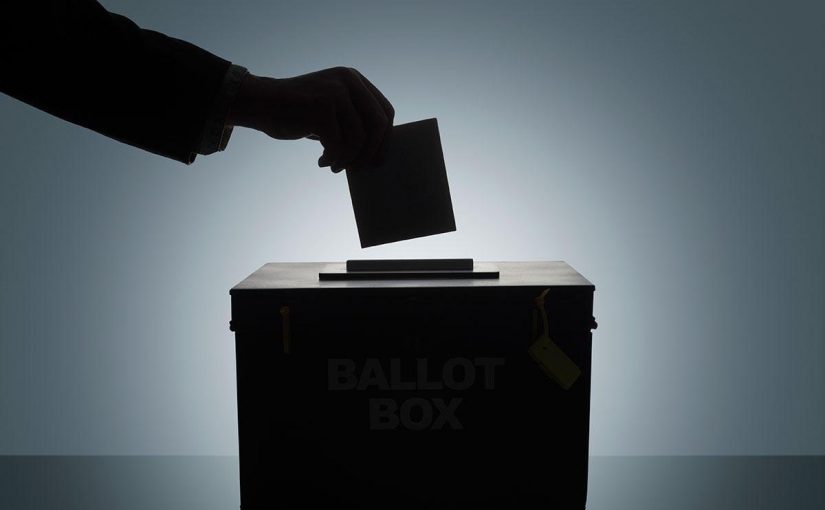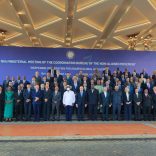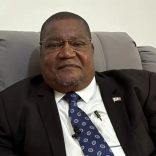Mozambique: Venâncio Mondlane named a defendant in yet another post-election case - Watch
Parliament curbs worst electoral fraud – By Joseph Hanlon

Fraud of the sort that occurred in municipal elections in October last year is made more difficult by amendments to the electoral laws approved by parliament last week. In five municipalities the Frelimo majority in elections commissions called secret meetings in which they ruled that Frelimo had won, despite parallel counts showing a Renamo victory. Renamo was unable to protest because the law said that a complaint could be made to the district court only if there had been a “prior objection” (impugnação prévia) at the meeting which Renamo was not told about.
The two key changes are:
+ Simply removing “prior objection” from the law, allowing a complaint about illegal action in elections to be made to the district court. All electoral legal actions go first to the district court, but are appealed directly to the Constitutional Council.
+ A one word change, from party agents “may” (podem) attend counts at district and province level to “should” (devem) attend. At province level they must be informed of meetings in writing, but not at district level. However the stronger “should” makes it easier to complain about not being informed. This will make it much harder for the Frelimo majority to convene secret meetings.
These two changes should make fraud at district election commission level more difficult.
Mozambique’s elections are governed by a hotchpotch of much amended but often contradictory electoral laws. Parliament last week was amending the national electoral law to match the new provincial electoral law.
A decade ago the Constitutional Council called for all the laws to be brought together into a single electoral code to ensure consistency. But donors went on strike, withholding aid for three months to successfully force the government to ignore the Constitutional Council and keep the collection of different laws instead of having a single code.
Calendar changes maintain confusion
Three changes to the electoral calendar have been agreed, but confusion remains.
The period for presenting candidates for the presidential and parliamentary elections scheduled for 15 October is cut from 120 days, but there is no agreement as to how long it should be. The parliamentary 1st commission (Constitutional Affairs) proposes 75 days, while the 4th commission (Public Administration) proposes 90 days. Each presidential candidate must have notarised signatures of 10,000 registered voters. The three main parties have the resources to collect these signatures, but minor parties have found the task very difficult even when they had 120 days to collect them.
After registration is completed, seats are distributed in proportion to the number of registered voters in each province, and the period for this is reduced from 180 to 105 days. But there is no correction to the mathematical error in the law, which means that the total number of seats assigned is often more or less than the 250 seats in parliament, and the National Elections Commission (CNE) must secretly change the allocation.
The time when parties can still register with the CNE is extended. The previous limit was 15 days before candidates lists were to be submitted, but this is cut to 5.
Foreign funds, invalid votes, and other changes
Other law changes and clarifications include:
+ Foreigners can no longer fund Mozambican elections.
+ Invalid votes (nulos) are all rechecked by the district elections commission. Until 2014 this was done by CNE, then in 2018 they were not rechecked at all. Polling stations often are too rigid, rejecting valid votes, which is why there is a check.
+ Anyone who uses government property during the electoral campaign is violating the law. Previously only political parties could be convicted.
+ In the polling station after the count, signed official copies of the results sheets (editais) are to be given to observers, journalists and polling station staff, as well as the to party agents. This will make parallel counts easier.
+ The law is strengthened to make it illegal to oblige anyone to say how they voted. Taking photos in voting booths is illegal, following incidents in which Frelimo had forced civil servants to take pictures of their ballot papers to prove they voted for Frelimo.
+ There can be only one police agent in a polling station.
+ A person cannot stand for an office if they resigned the post during the previous term, as in the present law, but this no longer applies if the person stood down because they were elected to higher office
+ Individual election observers no longer have to present a curriculum vitae (CV).
+ Those convicted of theft and civil servants who commit a crime related to their public service regain the right to vote.
And one change was not made. After discussion, it was agreed that the ban on campaigning in the two days before voting days should be retained.
And sloppy drafting was corrected to make it clear that only registered political parties can present candidates for national parliament, but that citizens’ lists can present candidates for provincial and municipal assemblies.
But the two parliamentary commissions have agreed some of their own sloppy drafting. In their definition of the results sheet (edital) produced at the polling station, they say it should contain the total number of votes and how many are blank of invalid, but not the number of votes for the respective candidates.
By Joseph Hanlon












Leave a Reply
Be the First to Comment!
You must be logged in to post a comment.
You must be logged in to post a comment.